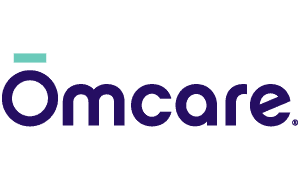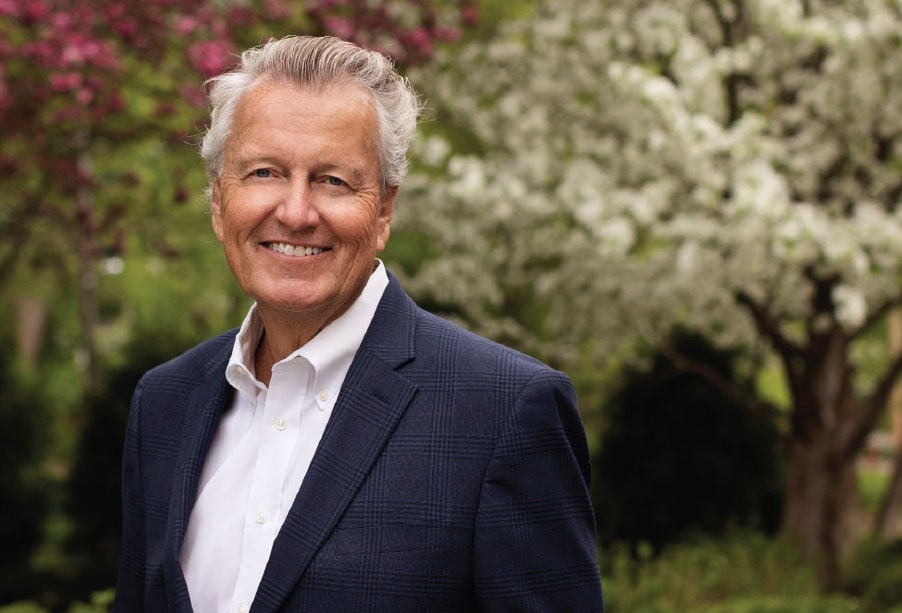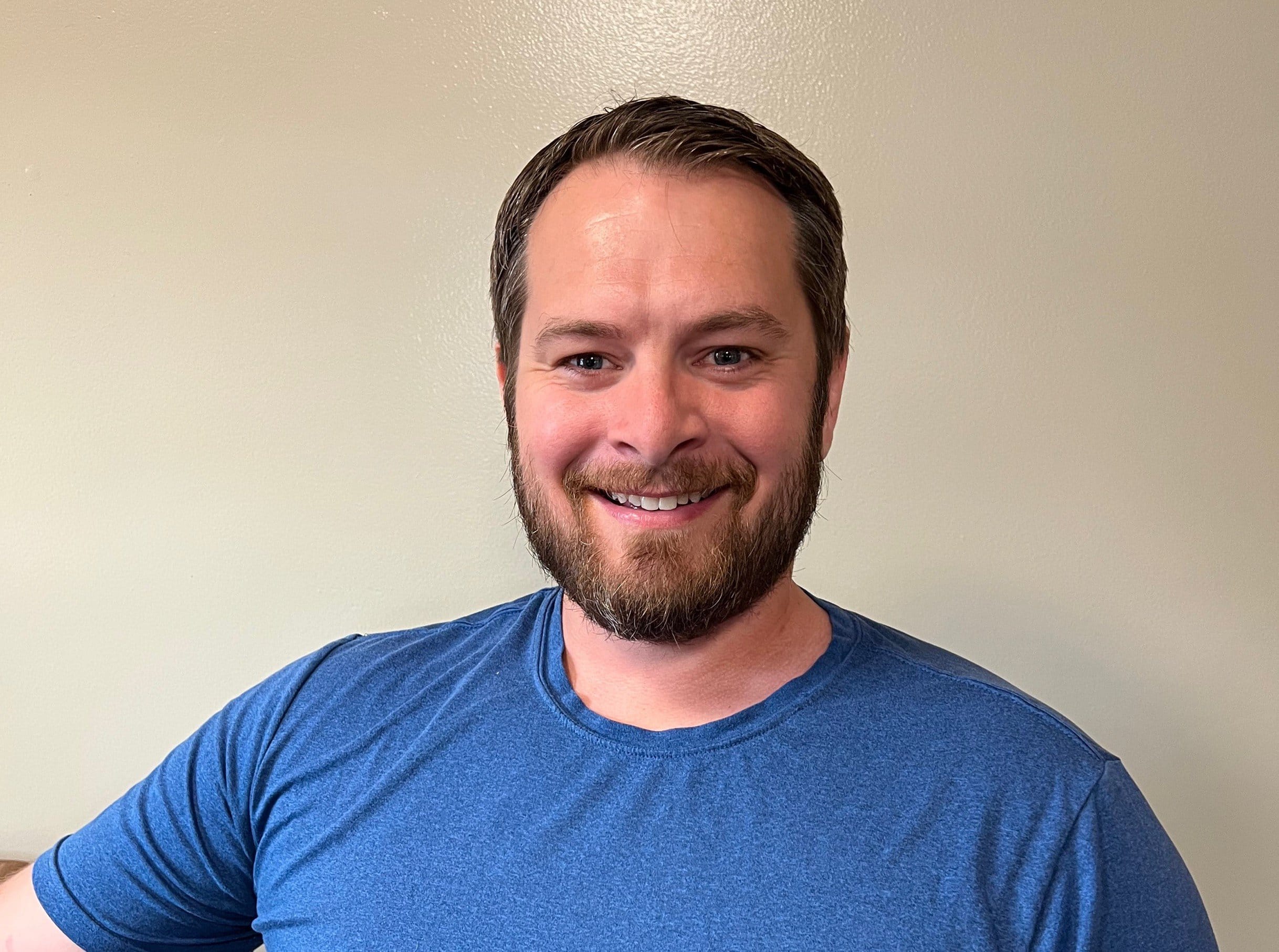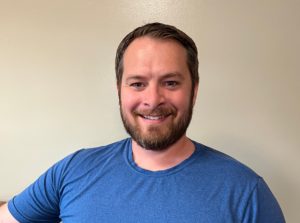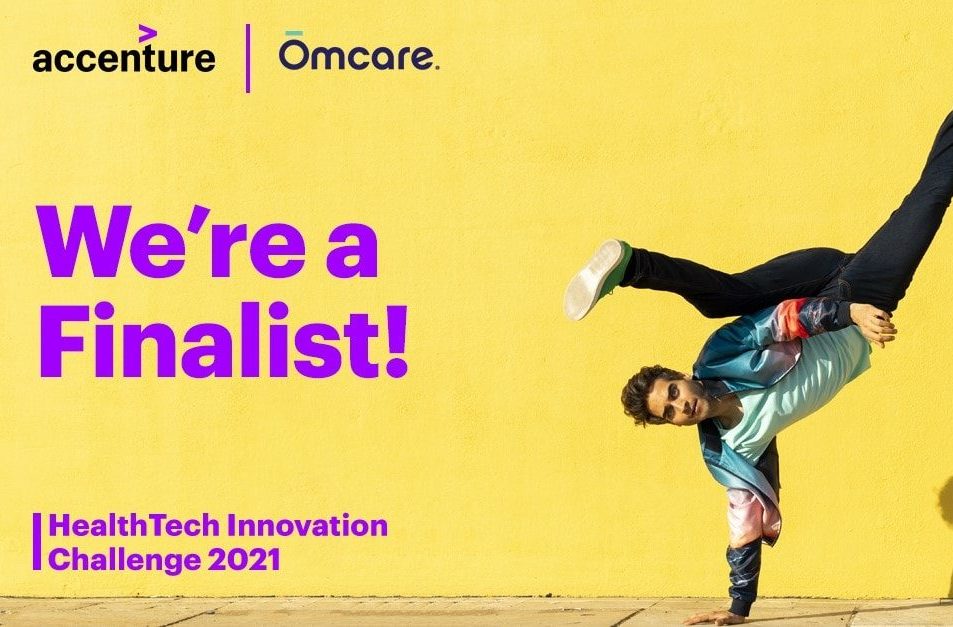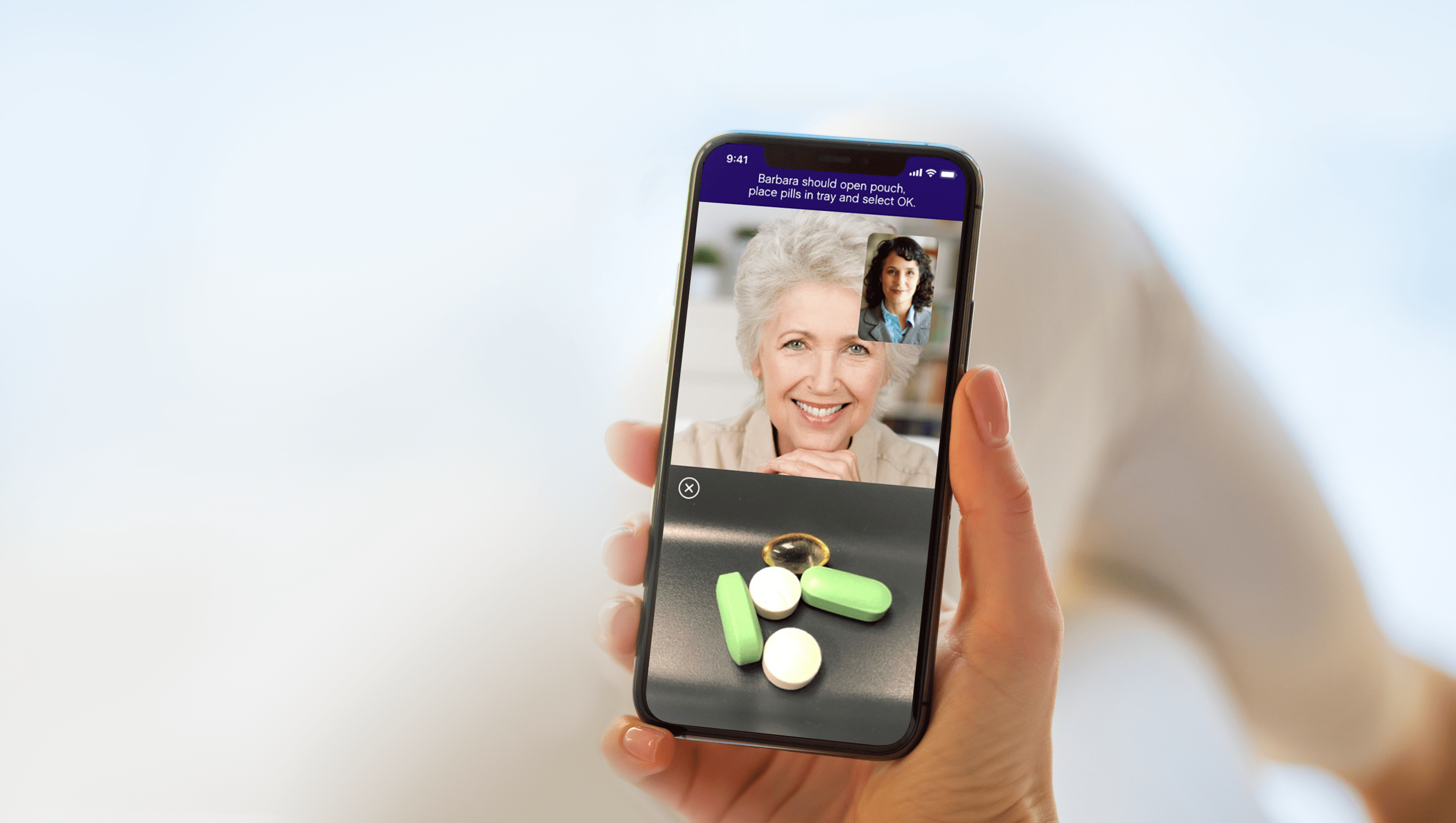Ōmcare Collaborates with Leading Senior Care Providers to Change Care Models for the Aging Population
- Ōmcare is launching an all-in-one technology platform to extend the reach of caregivers into the home and enable remote medication assistance that promises dose-level medication adherence.
- Ōmcare is collaborating with senior care providers, like Minnesota-based Ecumen and Ohio-based Continental Senior Communities, to accelerate their home care strategy. The new solution is entering the market at a critical juncture for the healthcare industry as more aging Americans are living longer with increasing chronic conditions and wanting to age in place at home, but doing so at a time when access to caregivers is falling.
- Ōmcare has integrated directly with national pharmacy information systems, allowing for seamless home delivery of medication for dispense and visual confirmation of adherence by the Ōmcare Home Health Hub®. This bridges a critical gap in the healthcare sector's ability to ensure the right medication, at the right time, for the right person.
[Minneapolis, October 24, 2023]. Today, Ōmcare announced that it is launching the Ōmcare Home Health Hub®, an all-in-one, customizable home health platform that allows care providers to extend care into the home via a secure infrastructure with one-touch access to telehealth services, aggregated remote patient monitoring, and medication dispensing with visual confirmation of dose-level medication adherence.
"Ōmcare exists due to the rapidly aging population; high rate of medication nonadherence; a shortage of family and professional caregivers; continued increase in health care costs; the need for in-home care and aging in place;" remarked Lisa Lavin, the CEO of Ōmcare. "Ōmcare opens up the home as a legitimate site of care by creating an all-in-one, easy-to-use solution with a comprehensive suite of capabilities required for remote care."
Ōmcare allows health care and senior care organizations to rapidly deploy a home care strategy while simultaneously customizing the provider and patient experience to fit their brand. The product's accessible architecture also allows for the integration of provider and consumer tools aimed at:
- Addressing the increasingly complex care needs of the Over 65 and dual populations.
- Delivering a platform that allows for tailored customization of current chronic and acute solutions.
- Extending caregiver reach and efficiency.
- Promising right medication, right time, right person.
To support a seamless consumer experience, Ōmcare integrates directly with pharmacy information systems enabling Ōmcare Home Health Hub users to know their medication schedule and receive timely alerts and medication assistance events. This integration delivers a comprehensive last-mile solution to address medication non-adherence, a problem that costs the healthcare industry more than $500 billion a year. More than 33% of hospital readmissions result from medication non-adherence as do 150,000 deaths each year. The novel relationship between Ōmcare, pharmacy and senior care providers is the first of its kind that will increase patient access to the care they need and empower clinicians with better visibility into whether or not patients are adhering to the medications they have been prescribed.
Medication adherence among older adults with chronic conditions taking multiple medications can be hindered by forgetfulness, the complexity of regimens, functional status, and other factors. Non-adherence is a leading driver of hospitalization and loss of independence. For senior care providers like Ecumen and Continental Senior Communities—the Ōmcare Home Health Hub serves as a portal for new services that help people maintain independence in their homes longer.
"Medication administration is one of the care needs that cause people to move into higher levels of care. Keeping residents in the lowest level of care and the highest degree of independence is critical for improved lifestyle, longevity and cost-effectiveness," said Eleanor Alvarez, Board Chair of Continental Senior Communities and CEO of LeaderStat. "The Ōmcare Home Health Hub's ability to provide remote care and ensure medication adherence sets a new bar in the industry and aligns with our innovation mindset."
"People are most comfortable when they are living where they want to live. Ecumen is dedicated to creating a home for older adults, wherever they choose to live," said Brett Anderson, Chief Ecosystem and Operating Officer of Ecumen. "We help them do that through innovations like the Ōmcare Home Health Hub, which helps residents maintain greater independence longer."
The Ōmcare Home Health Hub offering is available now through select senior care providers to bring telehealth services into the home to improve outcomes, reduce cost, increase member engagement, and elevate patient experience. For updates on the Ōmcare Home Health Hub, visit www.omcare.com.
About Ōmcare
Ōmcare is a digital health company pioneering a customizable, all-in-one home health platform that allows healthcare organizations to extend care into the home via a secure telehealth infrastructure with one-touch access to telehealth services, aggregated remote patient monitoring and medication dispensing with visual confirmation of dose-level medication adherence. Ōmcare is an AARP Innovation Labs portfolio company. It was recognized as one of the "top innovations" by the New York Observer and has been heralded by the Accenture HealthTech Innovation Challenge as one of the most innovative startups serving North America focused on solutions for health organizations. To learn more, visit www.Omcare.com/contact-us-providers/.
Media Contact: Megan Rogers
612-351-3780
meganr@media-minefield.com
www.omcare.com
Ōmcare selected as a 10 Most Innovative Digital Therapeutics Companies of 2022 by Insights Care
Omcare: Enabling One-Touch Access to Healthcare and Dose-Level Medication Adherence
What is the best thing to do for yourself or your loved ones when going through illness?
The only correct answer is CARE! People are most comfortable when they are in their own place of comfort. When illness occurs, individuals’ first instinct is to instantly check it with healthcare professionals for proper diagnosis and medical assistance.
For various reasons, going to healthcare or medical care centre is not always a viable option. In such a situation, a digital healthcare solution can prove to be a great sigh of relief.
A remote digital care solution provider company, Ōmcare, came into existence to provide effective healthcare services for you and your loved ones from the comfort of your home.
Based in Minneapolis, Ōmcare is a digital health company that aims to change the way the world cares by extending the reach of caregivers, increasing medication adherence, and improving treatment outcomes through the power of remote care and two-way video technology. By partnering with pharmacies, payers, providers, and family caregivers, Ōmcare strives to help people live healthier, more vibrant, independent lives and reduce healthcare costs.
Dedicated to providing one-touch access to various healthcare needs of the people is Ōmcare’s Founder and CEO, Lisa Lavin.
Let’s dive into the story of Ōmcare in its ambitious journey to become an efficient remote care solution.
Promoting Independence and Dignity for Aging Adults
Ōmcare is a digital health company that has pioneered a customizable home health platform that enables one-touch access to telehealth services, aggregated RPM, and medication dispensing with visual confirmation of medication adherence.
We all have those extra special people that impact us deeply at some point in our life. For founder Lisa Lavin, this special person was her grandmother, Mildred. Mildred was Lisa’s primary caregiver during a difficult period in her childhood.
Lisa and her grandmother were very close. As Mildred aged, she developed dementia and was eventually placed in a nursing home because there was no other way to help her maintain her independence.
Through this experience, Lisa became impassioned not only for her grandmother but for all aging adults. Lisa vowed that she would do everything she could to promote independence and dignity for older adults. “This generation deserves much more than a nursing home,” says Lisa. “They deserve connectedness, love, and a full, healthy, liberated life.”
All-in-one Healthcare Solution
Home is the new site of care, but it is messy and requires many solutions pieced together today to work. And the patient is always in charge of piecing them together by themselves.
For example, if your mom has a telehealth appointment. Hopefully, she has a tablet, and if she does, she knows where it is, and it’s charged. Then if she needs to take her blood pressure or give the doctor any other vitals, she needs to track down those devices too. It simply doesn’t work.
Ōmcare opens up the home as a legitimate site of care by creating a single, all-in-one solution that addresses consumer expectations while ensuring the comprehensive suite of capabilities required for the home is together in an easy-to-use, one-touch interface. It brings everything together—down to the data.
Greater Reach and Lower Cost
The world’s healthcare needs are on a constant rise. Getting customized medical attention from time to time requires people to keep visiting healthcare centers from time to time and also pay high amounts for simple consultations.
It is difficult for older adults to visit doctors regularly. The chances of worsening their health cannot be neglected if they have to go to hospitals on a regular basis. Ōmcare provides such people with the go-to option for getting one-stop assistance for their healthcare needs.
“Ōmcare allows people to age in place, bringing humanity and liberation to the aging process. It also provides greater access to care to more people since it’s less expensive and can reach rural areas,” says Lisa.
Continue reading the full article from Insights Care.
Ōmcare Achieves Dose-Level Medication Adherence and Creates New Revenue Model for Senior Care
In partnership with Ecumen and Thrifty White Pharmacy, Ōmcare successfully completed a pilot of its first product, the Ōmcare Home Health Hub® proving a new model for additional revenue and dose-level adherence.
[Minneapolis, October 11, 2022]. Ōmcare successfully wrapped their initial pilot in partnership with Ecumen and Thrifty White Pharmacy to test its first product—The Ōmcare Home Health Hub.
The Hub is an all-in-one home telehealth solution that enables remote care and ensures dose-level medication adherence. It stores up to a 30-day supply of multi-dose pouched medication that works in tandem with a video portal, providing visual confirmation that loved ones are taking the right medication at the right time.
Thrifty White Pharmacy provided home-delivered pharmacy fulfillment service for each participant in easy-to-load packaged medications. Then, over the course of the 3-month pilot, participants—who took at least 4 medications a day—received calls to their Hub from an Ecumen staff member when it was time to take their medications.
The pilot aimed to measure three key measurements:
- Evaluate medication adherence among participants
- Examine patient and caregiver satisfaction
- Compare operational and cost between remote medication assistance via the Ōmcare Home Health Hub and the traditional med door pass
“This innovation sparked our interest because we saw it as a way to help older adults live independently longer,” said Shelley Kendrick, president and CEO of Ecumen, a nonprofit provider, developer and operator of living spaces and services for older adults. “As we seek to find ways to serve people wherever they call home, medication management solutions like this are key.”
Overall, the pilot successfully demonstrated improvements in all three areas. With 780 calls, lasting an average of three minutes, the results showed:
- The participants had 98% dose-level adherence
- The medication assistance service via the Hub is 85% more efficient than door med pass
- 100% of the participants strongly agree Ōmcare helps them remember to take their medications
- 100% of the participants agree that they're more likely to take their meds using Ōmcare.
“We are grateful to Ecumen and Thrifty White Pharmacy for their commitment and stellar performance in our pilot,” said Lisa Lavin, Chief Executive Officer. “Both organizations continue to innovate to improve health, reduce cost, and elevate the patient and provider experience.”
Ōmcare is scaling up for an early 2023 commercialization and is actively seeking senior care partners who wish to expand their services via technology.
View the full report: Omcare Home Health Hub® Pilot Outcomes Report
Chuck Mooty, Minnesota Business Hall of Fame Inductee, Joins Ōmcare Board of Directors
Esteemed business leader, Chuck Mooty, joins the Board of Directors for innovative home health technology.
[Minneapolis, August 8, 2022].
Ōmcare announced that Chuck Mooty has joined their Board of Directors. Recently, Mooty was announced as a 2022 Minnesota Business Hall of Fame inductee for his many successes and thoughtful leadership throughout his career.
Within a six-year window, Mooty was the CEO and Chairman of four major Minnesota organizations. He led the rejuvenation of the Dairy Queen system, re-opened and rebranded the Faribault Woolen Mill, stewarded Fairview Health Services during a period of crisis and completely reinvigorated Jostens Inc.
Clearly, Mooty has a track record of helping companies thrive.
“Chuck is renowned for possessing the strategic insight and business acumen to parachute into any business and fashion a strategy for growth and optimization. As Ōmcare prepares for its commercial rollout of the Ōmcare Home Health Hub®, Chuck’s experience and laser-focused mindset will be instrumental for our national growth strategy,” said Lisa Lavin, Ōmcare CEO.
Mooty is enthusiastic to join a group of innovators who make home the site of care.
“I am truly excited to join Lisa and the entire Board of Ōmcare at this pivotal time of bringing innovative technology for medical care into the home” said Mooty. “As our world continues to age and our healthcare workforce continues to decline, technology must be able to meet this challenge and I believe that Ōmcare is perfectly positioned to lead in the innovative care delivery with safe and accurate medications within the home.”
Ōmcare aims to bring care into the home by extending the reach of caregivers and improve medication adherence and outcomes through its Ōmcare Home Health Hub®, which gives caregivers of all types – from physicians and pharmacists to home care providers or family members – the ability to provide remote care and confirm compliance with medication treatment plans from anywhere.
Ōmcare is currently wrapping up a successful pilot with Ecumen Senior Care and Thrifty White Pharmacy and will move into full commercialization later this year.
Ōmcare appoints Matthew Grose as CTO
Ōmcare appoints Matthew Grose as CTO
Grose will lead the development of the Ōmcare Home Health Hub® to bring remote care and medication adherence into the home.
[Minneapolis, June 8, 2022]. Ōmcare announced that Matthew Grose (MG) has been appointed Chief Technology Officer of the company.
An experienced engineering leader, MG spent the last seven years at Optum of UnitedHealth Group, most recently serving as Chief Engineer, VP Software Engineering. Before that, he honed his software skills at LifeTime — The Healthy Way of Life Company.
“Ōmcare has proven core functionality in pilot and is ready to accelerate development of its total solution”, said Lisa Lavin, Chief Executive Officer. “Bringing on a CTO with MG's experience and skills will enable Ōmcare to scale existing technologies while continuing to build innovative solutions for the future.”
While at UnitedHealth Group, MG’s contributions raised the bar of engineering excellence creating efficiency, scale and collaboration across business units. Notable highlights include serving as a Distinguished Engineer, leading the digital provider platform Link used by millions of providers a day, introducing sustainable and secure public cloud adoption and acting as Chief Engineer for the company’s technology platforms powering 40,000 engineers and technologists.
During the pandemic, MG stepped out of his normal duties and focused on increasing accessibility to COVID-19 vaccinations and the successful completion of CARES Act payments by leading rapid speed cloud projects spanning multiple companies, including fast-tracking a year-long cloud scaling plan in 5 weeks. Now, he brings both his software skills and leadership development to Ōmcare.
"I joined Ōmcare for the opportunity to create technology closer to the human experience while playing a pivotal role in the company's future. Ōmcare's purpose is a natural fit to my personal passion of improving quality of life through technology. It is exciting to imagine where home health care will be in 5, 10, 20 years and I'm honored to be playing a part here with Ōmcare. Let’s improve care in the home!” said MG.
Ōmcare is currently in final stages of pilot and expected to be commercial in late 2022.
About Ōmcare
Ōmcare is a digital health company pioneering a customizable home health technology platform that extends the reach of caregivers and enables one-touch access to telehealth services, aggregated remote patient monitoring and medication dispensing with visual confirmation of medication adherence.
AARP's AgeTech collaborative is linking start-ups, financing, industry
Many people age 50 and older are more savvy about technology than they are often given credit for.
They use technology daily in the workplace and at home. Social media has exposed them to marketing for new devices and apps. Plus the pandemic has forced them to adapt quickly to ideas they might have been hesitant to try a couple of years ago.
“And they’re expecting products and services that meet that level of sophistication,” says Rick Robinson, vice president for start-up engagement at AARP Innovation Labs.
It has driven AARP and its affiliated AARP Innovation Labs to launch the AgeTech Collaborative, an ambitious community of early stage start-up companies, entrepreneurs, venture capitalists, service providers and industry leaders brought together to spark ideas and spur innovation. The promise is that the collaborative will benefit all of them while ultimately serving the greater good of older consumers they are hoping to impress.
Read the full press release here.
Ōmcare joins fellow home health leaders to discuss the future of care
Minneapolis: October 13, 2021 – Ōmcare will join leaders in home health for the 5th Annual ConVerge2Xcelerate 2021 Symposium (#ConV2X) held November 9 – 11. The symposium will feature U.S. home health leaders to discuss advancing business critical regulation and policy reforms, market gaps, and the future of this burgeoning industry sector.
ConV2X 2021 is the acclaimed health technology modernization symposium focusing on health policy, telehealth, blockchain and artificial intelligence and connectivity in a refocused healthcare market. It is the premier destination community identifying new and cost-effective paths forward through real world evidence, strategy, operations, research & trends, where healthcare leadership and breakthrough technology providers inspire and guide informed decision making for niche markets in the exploding digital health marketplace.
“We are continually seeing the conversation become more prominent around getting care into the home. Aging in place not only allows individuals to maintain their independence for longer, but it’s a cheaper way to still provide high-touch care. Ōmcare is honored to join other companies that are helping win the home and provide even better care, at a lower cost, that also relieves burden on the healthcare workers shortage.” Lisa Lavin, Ōmcare CEO and Founder.
To understand how technology is empowering peace of mind in the home, sign up for the virtual conference today.
About Ōmcare
Ōmcare is a digital health company pioneering an open access, home health platform that allows healthcare organizations to extend care into the home via a secure telehealth infrastructure and integration with their patented medication dispensing technology. Based in Burnsville, MN, Ōmcare enables remote delivery of wrap around care coordination and integration of existing virtual care and remote patient care solutions, promising real medication adherence defined as right med, right time, right person. Ōmcare is currently in pilot and experiencing promising results.
Ōmcare named a finalist in Accenture HealthTech Innovation Challenge
“We are thrilled to be named a finalist and recognized as a company poised to transform how care is delivered in the home. Ōmcare is committed to helping seniors age where and how they want, lower the cost of care, and enable better outcomes. It's an honor to be included with seven other companies who are as committed to innovation”
- Lisa Lavin, CEO and Founder
Minneapolis: August 30, 2021 – Ōmcare has been named a finalist in the Accenture HealthTech Innovation Challenge, which brings together leading-edge startups with prominent health companies to tackle some of North America’s greatest health challenges.
Attracting more than 2,600 startup applicants in the past five years, the Accenture HealthTech Innovation Challenge supports finding innovative approaches and solutions to help create better healthcare access, experiences and ultimately outcomes for all people.
“The finalists are emerging businesses that are reimagining the healthcare experience to provide people with the convenience and personalization they are accustomed to receiving with other industries,” said Brian Kalis, managing director of digital health and innovation services at Accenture.
The finalists are:
The finalists will participate in the final round and awards ceremony at a virtual event to be held on September 28, 2021. The judging panel will comprise executives from globally recognized health and venture capital companies, providing the finalists with exposure and access to industry-leading experience to help bring their ideas to market.
About Ōmcare
Ōmcare is a digital health company pioneering an open access, home health platform that allows healthcare organizations to extend care into the home via a secure telehealth infrastructure and integration with their patented medication dispensing technology. Based in Burnsville, MN, Ōmcare enables remote delivery of wrap around care coordination and integration of existing virtual care and remote patient care solutions, promising real medication adherence defined as right med, right time, right person. Ōmcare is currently in pilot and experiencing promising results.
Thinking big in Minnesota
Big ideas are nothing new in Minnesota. Earl Bakken’s big idea gave us the battery-powered pacemaker. And Betty Crocker—herself a big idea of the General Mills marketing team—had a big idea that gave us shelf-stable cake mix. Truly, without Minnesotans the world wouldn’t have the supercomputer, the pop-up toaster, or Zubaz. And if these 35 ideas, inventions, and innovations are any indication, Minnesota’s not done thinking yet.
NO. 1
Up North is famous for its vast boreal forests. A Grand Rapids scientist is making sure they remain vast as the climate warms.
Most Minnesotans feel a deep calm on their way up north: The air cools and freshens, and foliage perceptively shifts from the hardwoods of the south to the great boreal pine forest of the north. But species like white and black spruce, balsam fir, and quaking aspen are endangered by our warming climate and encroaching pests. The worst-case scenario is that within 100 years the Boundary Waters will be surrounded by prairie or wide-open savanna. Thankfully, scientists at the University of Minnesota, The Nature Conservancy, and the U.S. Forest Service are planning what our future boreal forest will look like. Brian Palik has been stationed at the Grand Rapids Forest Service research lab for the past 26 years.
“The predictions for northern Minnesota are pretty bleak,” he says about the anticipated 10-degree hikes in winter temps if CO2 continues to grow unabated. “So if we want pine forests 100 years from now, we better look at a range of options.”
One of the best options is called “assisted migration,” which Palik and his crew have been working toward by planting trees in their experimental forest to determine which perform better in warmer, drier conditions—trees like ponderosa pine from the west and burr oak from the south.
“We’re trying to demonstrate that people can start planting these species now in these northern pine forests and expect them to do well.”
NO. 2
An Edina guy parlayed the pandemic into a return trip to the White House.
Andy Slavitt wasn’t always a health care crusader. After graduating from UPenn’s Wharton School and receiving his MBA from Harvard, Slavitt was settling into life as an investment banker and McKinsey type before his good friend died of a brain tumor. During the process, Slavitt saw firsthand the sort of collateral damage the American health care system can inflict on a family, as his friend’s widow and children were forced to move in with the Slavitts. He jumped into health care and ended up in Minnesota as a vice president at UnitedHealth’s Optum. And when the Obama administration hired Optum to fix the botched rollout of the Affordable Care Act’s Healthcare.gov, he went with the team to D.C. Before long, he became the acting administrator of the Centers for Medicare and Medicaid Services. Slavitt spent most of the Trump administration fighting efforts to repeal the ACA. That is, until the pandemic set him on an entirely new course. Via his biweekly podcast, In the Bubble: From the Frontlines, he became one of the most prolific real-time sources of credible information and interviews about COVID-19. It even led to a book, Preventable: The Inside Story of How Leadership Failures, Politics, and Selfishness Doomed the U.S. Coronavirus Response, slated to be published in June. Slavitt’s COVID deep dive also got him back into the White House as a senior advisor on President Biden’s COVID response team.
NO. 3
We repurpose abandoned iron ore mines into aeroponic farms.
Community-supported agriculture (CSA), wherein farms sell their crops directly to individuals and families, is nothing new. Neither are decommissioned mines in northern Minnesota. Marrying the two, however? Now that is a horse of a different color. And yet that’s exactly what Tower-based farm start-up Harvest Nation is readying to do via vertical aeroponic farming in the Soudan Underground Mine. Wait. What? In the where?! Vertical aeroponic farming (a novel method of soil-free farming that constantly mists crops with nutrient-filled water to grow) in the underground physics laboratory of Minnesota’s first iron ore mine. Harvest Nation is the brainchild of Denise Pieratos, Tracey Dagen, Dani Pieratos, and Nikki Love. The women, who are all members of the Bois Forte Band of Chippewa, have long wanted to establish a four-season indoor farm to provide their community nutrient-rich, fresh, and affordable produce, and a random encounter with an official from the Lake Vermilion-Soudan Underground Mine State Park led to the epiphany that the mine’s physics lab room, replete with 40-foot-high ceilings, would be just the place. Now, designs are in place, financing is in progress, and once financing is firmed up, presale produce box subscriptions will be available for around $55 per week. Heirloom, soilless, iron-ore-mine dragon carrots? Don’t mind if we do.
NO. 4
We invented an iron lung… for your head?
Early in COVID, when PPE was at its shortest supply and hospital staff were realizing that N95 masks alone wouldn’t cut it for frontline health care workers, U of M Medical School professors Drs. Kumar Belani and Gwenyth Fischer were inspired by a concept they’d seen in Taiwan and created a rigid cube structure that goes over an infected patient’s head. Their “ventilator box” has ports for workers’ arms to access the patient and HEPA filtration to save negative-pressure rooms for the patients who need them most.
NO. 5
A company from Burnsville created a way for you to make sure Grandma’s taking her meds when you can’t be in the same place as Grandma.
Video messaging apps like FaceTime have become indispensable in maintaining contact with Grandma and Grandpa during the pandemic. But what if you actually have to make sure they’re taking their pills at the right time?
Enter Burnsville start-up Omcare’s new home medicine dispenser. Adapted from CEO and founder Lisa Lavin’s smart treats dispenser for pets, the slick new device takes Nurse Ratched from One Flew Over the Cuckoo’s Nest and mellows her out by crossing her with a machine that reminds us of Pixar’s adorable Wall-E.
The dispenser’s interactive cameras allow you to not only watch Gammy take her pills when she’s supposed to take them but also to make sure she actually swallows them down. Now all it needs is a spoonful-of-sugar button.
Read the full list from Mpls. St.Paul Magazine here.
Pill-dispensing tech makes the medicine go down...with human help, that is
When Stephanie Luehrs’s father began losing track of what day it was, she knew his pre-filled pill packs were no longer going to work, even though they were carefully labeled. So she bought him a high-tech pill dispenser.
The MedMinder device she got has compartments for every day of the week, and they pop open with a beep when it’s time to take the pills stored inside. Ms. Luehrs gets a text notification if her dad hasn’t taken his pills. When she learned he missed some doses, she went to his apartment and turned up the volume on the machine. One day, she got a notification that the machine was operating on backup battery—her father, who has Alzheimer’s, had unplugged it. Another time, he didn’t close one of the compartments properly and the box got jammed. Ms. Luehrs had to call customer service, which remotely unlocked the compartments, and then she closed them properly.
People like Ms. Luehrs are finding that when it comes to pill-taking, technology only works with human involvement, especially for people with memory loss. “The machine is great, but you definitely want to have someone to help with refills or other issues,” Ms. Luehrs, of Rogers, Minn., said.
Numerous products and services are designed to make pill-taking easier, from “smart” caps like Pillsy, which screw onto prescription bottles and chirp when it’s time to take pills, to the type of automatic pill dispensers Ms. Luehrs uses.
Other types include Hero, Dose Flip and MedaCube, which hold weeks’ or even months’ worth of pills and can be programmed to release the right amount at the right time. The devices sound an alarm to indicate it’s time to take pills; most also work with apps so that caregivers can get notifications of missed doses.
There are simpler approaches, too: reminder services and apps such as MyMeds, Medisafe and CareZone.
While most of these work as advertised, there’s still the “last mile” problem of getting the pills into the dispensers—and then into peoples’ mouths.
“We don’t have a good system for identifying and matching the right kind of technology with the specific caregiving situation,” said Joseph Gaugler, a professor and director of the Center for Health Aging and Innovation at the University of Minnesota. “A lot of technology for seniors is marketed as being good for all.”
Some medical experts told me patients would take their medicine more often if they were better educated about why it’s important. I’m a bit dubious of that argument. We all know a good diet and physical activity can stave off illness, yet it’s still hard for many people to stick to healthy eating and exercise habits. Some experts said it’s the difficulty of forming new habits that makes pill-popping so hard—and not just for older adults with dementia.
I won’t remember to take vitamins unless the bottle is sitting right next to my coffee maker, where I’ll be sure to see it. After all, none of my daily habits are as entrenched as my morning coffee ritual. But even when the bottle is right there, I often conveniently forget. (I don’t like swallowing pills.)
There are many other reasons people won’t take pills—the cost of medication, concerns about side effects and the reminder that they aren’t in perfect health. Approximately 50% of patients with a chronic illness don’t take medications as prescribed, according to several studies. This is a big deal when you consider that 69% of Americans ages 40 to 79 took one or more prescription drug in the past month, and 22% took five or more, according to the Centers for Disease Control and Prevention.
Andre Bierzynski, a director at AARP Innovation Labs, has been working with startups to make medicine-taking easier. He said the most promising solutions combine technology with human assistance. He pointed to an early-stage startup he’s been working with called Ōmcare. The company intends to sell its automated pill dispensers to senior-care providers, who would then lease the device to consumers and charge them for their services. The senior-care provider that’s testing it with about 50 seniors in Minnesota has employees who check in with people via an on-device video screen to make sure they’re taking their pills properly. Ōmcare is partnering with a Midwestern pharmacy to provide the pill packs the machines dispense. Company founder Lisa Lavin said she plans to commercialize the service in the Midwest by the end of the year, then expand into more states next year.
Read the full article from The Wall Street Journal here.
